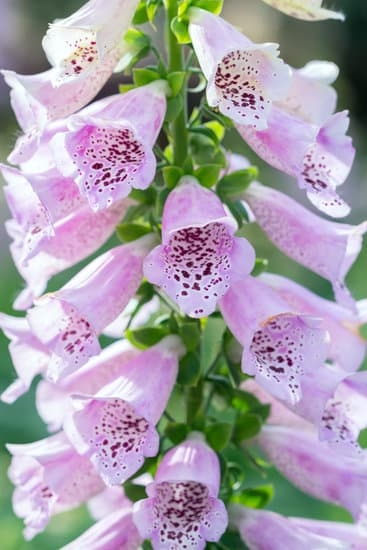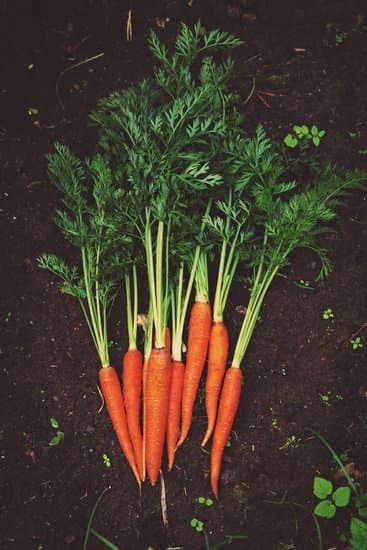Gardening has long been recognized as a therapeutic and enjoyable activity, with numerous benefits for individuals of all ages. However, for elderly individuals, gardening can be particularly beneficial in promoting physical activity, mental well-being, and social interaction.
In this article, we will explore the various gardening ideas specifically tailored to meet the needs and interests of seniors. From accessible garden designs to low-maintenance plant options and adaptive gardening tools, there are countless ways to make gardening a fulfilling and accessible hobby for the elderly.
For many elderly individuals, gardening offers a sense of purpose and accomplishment, as well as an opportunity to connect with nature. The gentle physical activity involved in tending to a garden can help maintain mobility and flexibility, while the mental stimulation of planning and caring for plants can contribute to overall cognitive health. Additionally, the social aspect of participating in community gardening programs provides an opportunity for seniors to connect with others who share their interest in horticulture.
As we delve into the various aspects of gardening ideas for the elderly, we will discuss how accessible garden design, low-maintenance plant options, container gardening, adaptive tools, garden safety measures, community gardening opportunities, and engaging activities catered specifically towards seniors can make gardening a rewarding and fulfilling experience.
Whether you’re an elderly individual looking to explore new hobbies or a caregiver seeking meaningful activities for your loved ones, this article aims to provide valuable insights into making gardening an enriching part of everyday life for seniors.
Accessible Garden Design
Creating an accessible garden design is essential for ensuring that elderly individuals can fully enjoy the benefits of gardening. One of the most important considerations when designing a garden for seniors is mobility. Raised beds are a great option for accommodating mobility issues, as they eliminate the need to bend over or kneel down while gardening. Vertical gardening, such as trellises and hanging baskets, can also provide easy access to plants without requiring excessive bending or reaching.
In addition to raised beds and vertical gardening, pathways in the garden should be wide enough to accommodate mobility aids like wheelchairs or walkers. Smooth and even surfaces are also crucial to prevent trips and falls. Adding comfortable seating areas throughout the garden allows elderly gardeners to take breaks and enjoy their hard work.
Incorporating elevated planting areas and adjustable work surfaces is another way to make the garden more accessible. These features ensure that elderly individuals can continue enjoying gardening activities without straining themselves. Ultimately, an accessible garden design allows seniors to experience the joys of gardening while reducing physical strain and discomfort.
| Accessible Garden Design | Elderly Gardening Ideas |
|---|---|
| Raised beds | Vertical gardening |
| Wide pathways | Elevated planting areas |
| Smooth surfaces | Adjustable work surfaces |
Low Maintenance Plant Options
One of the key considerations when designing a garden for elderly individuals is to choose plants that are low maintenance and easy to care for. Drought-resistant, hardy, and pest-resistant plants are ideal choices for senior gardeners. These types of plants require minimal attention and upkeep, making them perfect for elderly individuals who may have limited mobility or energy.
Some excellent low maintenance plant options include succulents, such as aloe vera and jade plants, which thrive in dry conditions and require very little watering. Additionally, perennial flowers like coneflowers, black-eyed Susans, and daylilies are sturdy and long-lasting, adding beautiful blooms to the garden with minimal effort. For those looking to incorporate edible plants, herbs like rosemary, thyme, and sage are not only low maintenance but also offer the added benefit of culinary use.
When selecting low maintenance plants for an elderly person’s garden, it’s important to consider their specific needs and preferences. By choosing the right combination of plants that require minimal care and attention, elderly gardeners can enjoy a thriving garden without feeling overwhelmed by the maintenance requirements.
In addition to choosing low maintenance plants, it’s also helpful to consider grouping them together based on their watering needs. This can make it easier for elderly individuals to manage their garden while ensuring that each plant receives the appropriate level of care. By incorporating these low maintenance plant options into a senior-friendly garden design, gardening can become an enjoyable and manageable activity for individuals in their later years.
Container Gardening
Choosing the Right Containers
When selecting containers for gardening, it’s important to consider the size and weight of the pots. Lightweight plastic or resin containers are easier to move around and lift, reducing strain on elderly gardeners. Additionally, choosing containers with built-in wheels can make them even more manageable.
Selecting Suitable Soil
Using the right soil is crucial for successful container gardening. Elderly gardeners can opt for lightweight potting mixes that are specifically formulated for container plants. These mixes provide good drainage and aeration, which are essential for healthy plant growth.
Benefits of Container Gardening for Seniors
Container gardening offers numerous benefits for elderly individuals. It allows them to grow their favorite fruits, vegetables, herbs, and flowers in a smaller space without the need for extensive bending or kneeling. This type of gardening also provides more control over soil conditions and watering, making it easier to maintain plants.
With container gardening, seniors can still enjoy the satisfaction of nurturing living plants and reaping the rewards of their efforts without having to navigate a large garden area. This approach also minimizes the risk of outdoor hazards such as uneven terrain or slippery surfaces while still allowing seniors to engage in a fulfilling hobby that promotes physical activity and mental well-being.
Adaptive Gardening Tools
When it comes to gardening ideas for the elderly, one of the key factors to consider is making sure that elderly gardeners have access to the right tools and equipment that are specifically designed to meet their needs. There are numerous adaptive gardening tools available in the market that can make gardening tasks easier and safer for seniors.
These tools include lightweight and easy-to-grip hand trowels, pruners, and shears, as well as long-handled tools that reduce the need for bending or kneeling.
Another essential tool for elderly gardeners is a sturdy and stable garden kneeler seat, which provides support while working at ground level and can also serve as a comfortable seat for taking breaks during gardening sessions. Additionally, consider using ergonomic hand tools with padded handles to reduce strain on arthritic hands, as well as telescoping reach extenders for accessing hard-to-reach areas in the garden without excessive bending or stretching.
It’s important to note that having the right adaptive gardening tools not only makes gardening more accessible for the elderly but also helps prevent injuries and discomfort associated with traditional gardening equipment. By incorporating these specially designed tools into their gardening routine, seniors can continue to enjoy the physical and mental health benefits of gardening well into their golden years.
| Adaptive Gardening Tools | Gardening Equipment |
|---|---|
| Lightweight hand trowels | Reduce strain on arthritic hands |
| Sturdy garden kneeler seat | Provides support at ground level |
| Ergonomic hand tools with padded handles | Reduces strain on arthritic hands |
| Telescoping reach extenders | Access hard-to-reach areas without excessive bending or stretching |
Garden Safety
Gardening can be a wonderful and fulfilling activity for the elderly, providing numerous physical, mental, and emotional benefits. However, it is important to consider the safety of elderly individuals while they engage in gardening activities. Creating a safe garden environment is essential to ensure that seniors can continue to enjoy the pleasures of gardening without unnecessary risks. Here are some tips for promoting garden safety for the elderly:
- Ensure clear pathways: Create wide and clear pathways within the garden to prevent tripping hazards. Use materials such as gravel or smooth paving stones for easy navigation.
- Install sturdy handrails: If there are any steps or raised areas in the garden, install sturdy handrails to provide support and stability for elderly individuals as they move around.
- Provide ample seating: Incorporate seating areas throughout the garden where seniors can take breaks and rest when needed. Choose comfortable chairs with armrests for added support.
- Use non-slip surfaces: Use non-slip mats or coatings on walkways and outdoor furniture to minimize the risk of falls, especially during wet or slippery conditions.
- Proper lighting: Ensure that the garden is well-lit, especially in the areas where seniors may spend time during early morning or evening hours. Adequate lighting can help prevent accidents and improve visibility.
By implementing these safety measures, elderly individuals can continue to enjoy their gardening activities without fear of injury or discomfort. Creating a safe environment also allows them to experience all the therapeutic and enjoyable aspects of tending to plants and spending time outdoors.
Community Gardening Opportunities
For elderly individuals who may not have the space or resources to create their own gardens, community gardening programs can provide a wonderful opportunity to engage in this fulfilling activity. Community gardens are shared spaces where people from the neighborhood can come together to cultivate plants, share knowledge, and foster a sense of community.
These programs often provide plots of land, tools, and resources for members to use, making it easier for seniors with limited mobility or financial means to participate.
Benefits of Community Gardening
Participating in a community gardening program offers numerous benefits for elderly individuals. It provides them with an opportunity to socialize, connect with others in their community, and form meaningful relationships with fellow gardeners. Engaging in group gardening activities can also help seniors stay physically active and mentally stimulated. Many community gardens also organize educational workshops, events, and activities that cater to the specific needs and interests of elderly participants.
Finding Local Community Gardens
To explore community gardening opportunities for the elderly, individuals can start by researching local organizations, senior centers, or horticultural societies that may facilitate such programs. These groups often have information about existing community garden initiatives or may be able to assist in establishing new ones within the neighborhood. Additionally, online resources such as community gardening directories or social media groups can provide valuable leads on nearby communal gardening spaces.
By taking advantage of community gardening opportunities, elderly individuals can not only enjoy the physical and mental benefits of tending to plants but also become part of a supportive and inclusive social network. The sense of achievement and camaraderie that comes from working alongside others in a communal garden setting can greatly enhance the overall experience of gardening for seniors.
With these enriching opportunities available, older adults are encouraged to explore the various community gardening programs in their area as a means of staying active, engaged, and connected with their local community.
Gardening Activities for Seniors
Gardening can be an incredibly rewarding and beneficial activity for seniors, providing a range of physical, mental, and emotional benefits. However, as individuals age, it’s essential to modify gardening activities to accommodate any mobility or sensory limitations they may have. Here are some gardening ideas for the elderly that can make the experience enjoyable and accessible:
Bird Watching
Encouraging birds to visit the garden can add an extra element of enjoyment to the outdoor space. Setting up bird feeders and bird baths can attract a variety of bird species, providing seniors with the opportunity to observe and appreciate nature from the comfort of their garden.
Nature Walks
For elderly individuals who may have limited mobility, creating winding pathways throughout the garden can allow them to take leisurely strolls amidst nature. Adding benches or resting areas along the path can make it easier for seniors to take breaks and enjoy the scenery.
Sensory Garden Experiences
Incorporating sensory elements into the garden, such as fragrant flowers, textured plants, wind chimes, and water features, can provide a multi-sensory experience for elderly individuals with vision or hearing impairments. This allows them to engage with nature in ways that go beyond traditional gardening activities.
These gardening activities for seniors not only provide enjoyment and stimulation but also contribute to overall well-being by promoting relaxation, physical activity, and a connection with nature. By incorporating these ideas into their gardening routines, elderly individuals can continue to experience the benefits of gardening in a way that is safe and enjoyable for them.
Conclusion
In conclusion, gardening can be a fulfilling and accessible hobby for the elderly, offering numerous physical, emotional, and social benefits. The therapeutic nature of gardening can provide seniors with a sense of purpose and accomplishment while also promoting relaxation and stress relief. By engaging in gardening activities, elderly individuals can stay physically active and mentally stimulated, improving their overall well-being.
With the helpful tips provided for accessible garden design, low maintenance plant options, container gardening, adaptive gardening tools, and garden safety measures, elderly individuals can enjoy gardening without feeling overwhelmed by the physical demands. Additionally, community gardening programs offer opportunities for social interaction and a sense of belonging. These programs not only provide support but also create a space for shared experiences and friendships among like-minded individuals.
Elderly individuals are encouraged to explore the various suggestions and ideas presented in this article to make their gardening experience more enjoyable and fulfilling. Whether it’s tending to raised beds or participating in community gardening projects, there are plenty of ways for seniors to engage in meaningful and rewarding garden-related activities.
Ultimately, the goal is to inspire and empower elderly individuals to embrace gardening as a positive and beneficial pastime that can be tailored to their specific needs and abilities.
Frequently Asked Questions
What Type of Garden Is Easiest for Elderly People to Use?
For elderly people, a raised bed garden is often the easiest to use. Raised beds reduce the need to bend or stoop, making it more accessible for those with mobility issues. They also provide better drainage and can be placed at an ideal height for easy access.
What Is the Best Garden for the Elderly?
The best type of garden for the elderly is one that is low-maintenance and easy to navigate. This could include container gardens, vertical gardens, or raised bed gardens. These options minimize the physical strain on older individuals while still allowing them to enjoy gardening.
How Do You Garden as We Age?
As we age, adapting our gardening techniques becomes crucial. Using ergonomic tools, investing in raised beds or container gardening, and prioritizing low-maintenance plants are some ways to continue enjoying gardening as we age. It’s important to listen to our bodies and make adjustments accordingly.

Welcome to my gardening blog! I am passionate about plants and enjoy sharing my knowledge and experiences with others. In this blog, I will write about everything related to gardening, from tips on how to get started to updates on my own garden projects.





